Bitcoin IRA: Top Crypto Individual Retirement Account Companies
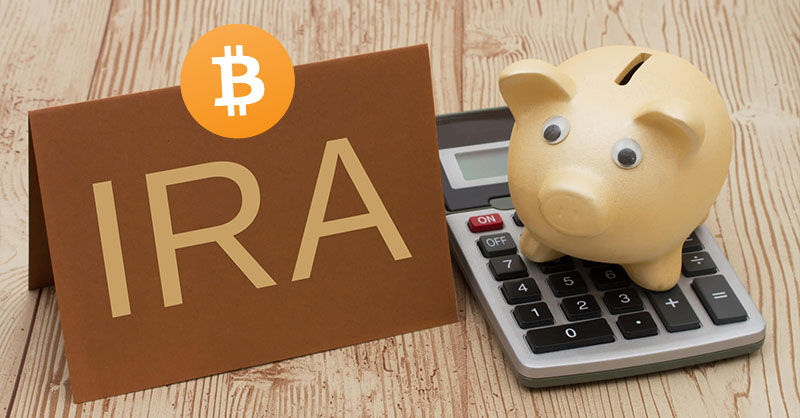
A two-part Bitcoin IRA guide on how bitcoin retirement accounts work and a review of the 9 best cryptocurrency-centric individual retirement account company providers on the market in 2019.
Bitcoin IRA: How to Add Bitcoin to A Retirement Account
Bitcoin can now be added to your retirement account in America. Yes, crypto IRAs are officially here.
Today, we’re explaining everything you need to know about how bitcoin IRAs work, the pros and cons of adding bitcoin to your retirement account, and the most trustworthy bitcoin IRA custodians on the market.
What is a Bitcoin IRA?
First lets clarify, a bitcoin IRA is a self-directed individual retirement account (IRA) that holds investments in bitcoin. A traditional IRA holds precious metals, stocks, or bonds.
Internal Revenue Service (IRS) regulations do not specifically allow you to hold cryptocurrency in an IRA. However, the Internal Revenue Code does not specify which assets self-directed IRAs can hold as investments: it only specifies which assets you cannot hold. Bitcoin is not an excluded asset, so it’s perfectly legal to hold bitcoin in your IRA.
The IRS has not excluded any cryptocurrencies from being held in IRAs. This means you can have bitcoin in your IRA, but you can also have Litecoin, Ethereum, Ripple, or whatever other cryptocurrencies you would like to invest on.
How to Add Bitcoin to your IRA

Most individual retirement accounts (IRAs) in America are managed by custodians or trustees on behalf of investors. The bank or broker-dealer, for example, holds stocks, bonds, mutual funds, and certificates of deposits in the investment vehicle.
However, some Americans choose to have self-directed IRAs. With a self-directed IRA, you can add different investment assets. You can hold real estate, promissory notes, tax lien certificates, gold, private placement securities, and even bitcoin in your self-directed IRA.
There’s no such thing as a Bitcoin IRA per se, just as there’s no such thing as a Gold IRA or a Stocks IRA or any other types of asset class-specific IRAs. All of those are marketing terms that hold zero practical significance. Under the law, there is only the IRA.
Here’s the basic process of adding bitcoin to your IRA:
Step 1) Open a self-directed IRA through an IRA custodian
Step 2) Find a bitcoin IRA facilitator or buy bitcoin yourself from an exchange
Step 3) Fund your self-directed IRA via a rollover or transfer
Step 4) Hold bitcoin in your IRA until you’re 59.5 years old (or pay a penalty to withdraw your bitcoin early)
Your self-directed IRA has the same regulatory requirements as an ordinary IRA. You cannot access your money until you are 59.5 years old or else you face a penalty for early withdrawal.
Plus, with a self-directed IRA, you are in charge of your own investment decisions.
For many people, adding bitcoin to the IRA gives them some much-needed diversification. Some believe bitcoin gives their portfolio the highly-desirable “alpha”. Bitcoin isn’t tied to the economic success of one specific country, for example, nor is it tied to real estate prices, gold, or other assets. It moves in its own ways for its own reasons, and that’s why some investors are happy to add bitcoin to their portfolio.
For clarity, the IRS clarified that cryptocurrencies were treated as property for tax purposes in a notice issued in 2014. As of that announcement, Bitcoin enthusiasts got the green light to proceed with confidence knowing that the IRS viewed their asset-of-choice as personal property — similar to shares of stock — which ultimate allows cryptocurrencies to be included in IRAs.
The specific procedure for opening a bitcoin IRA varies between providers. One major company has partnered with BitGo as its digital wallet and security provider for crypto retirement assets, for example. The company uses BitGo’s institutional custody service to hold customers’ bitcoins. If you want to access your bitcoin, then you’ll need to complete government-issued identification and voice verification.
Pros and Cons of Adding Bitcoin to your IRA
There are advantages and disadvantages of adding bitcoin to your IRA. Advantages and disadvantages include:
Pros
- Diversification: Bitcoin moves independently from individual markets, economies, and currencies. It can add much-needed diversification to your portfolio. It could even insulate your account from huge losses during a downturn.
- Limit the Effects of Inflation: Bitcoin has a fixed total supply, which means it is not subject to artificial inflation. Billions of US Dollars are printed every year, which is why the value of 1 USD gradually drops over time.
- Cut Out Banks: With bitcoin IRAs, you can avoid relying on banks to manage your money (although you still need to rely on a self-directed IRA custodian).
- Avoid Capital Gains Tax and Enjoy Tax-Free Growth: Holding bitcoin in your IRA insulates your bitcoin from taxes. You won’t pay 15 to 20% capital gains tax on any profits you make from holding bitcoin.
- Easy Bitcoin Purchasing: When buying bitcoin in your IRA through a bitcoin IRA service provider, you don’t go through a traditional exchange interface. Instead, you file an order with the custodian, and the custodian buys bitcoin on your behalf. It’s an easy process that does not require you to sign up for an exchange, complete additional KYC verification, or manage your own wallet.
- Built-in Custody Solution: With a bitcoin IRA, the IRA custodian holds your bitcoin. They are the custody solution. You don’t have to trust an exchange to hold your money, nor do you have to worry about your own wallet or private key management.
- No Minimum Investment Limits: Some bitcoin IRA firms have minimum investment limits, while others do not.
Cons
- Initial Setup Fees: Self-directed IRAs come with their own fees. Setting up a $50,000 self-directed IRA account for trading can cost as much as $6,000 in fees for the initial setup, for example. Fees vary between providers. Bitcoin IRA services, however, are particularly costly because there are few providers in the space.
- Custody and Maintenance Fees: You don’t just have to pay to set up your self-directed IRA; there are also recurring custody and maintenance fees charged by self-directed IRA providers.
- Transaction Fees: In addition to all of the fees above, you still need to pay costly fees per transaction. Most bitcoin IRA providers charge a fee of around 3.5% per transaction for each purchase and 1% for each sale. Put into exchange terms, you’re paying 3.5% taker fees and 1% maker fees, which is 10x to 30x more than you pay on an ordinary exchange. Some bitcoin IRA providers charge purchasing fees of 5%, while others charge $150 per sale.
- Premature Withdrawal Fees and Taxes: If you decide to close down your self-directed IRA and withdraw your money before age 59.5, then you’ll pay additional fees. You might also have to pay capital gains tax. Avoiding capital gains tax was the main reason you set up a bitcoin IRA in the first place.
- Minimum Investment Limits: Some bitcoin IRA providers have minimum investment limits of $10,000 to $30,000.
- You’re Still Relying on Financial Service Providers or Middlemen: There’s no real way to open a self-directed retirement account in the United States without a middleman or financial services provider. You still need a custodian for your self-directed IRA. Some people like bitcoin because it provides ‘true freedom’ from the current financial system. With a bitcoin IRA, you’re still tied to the financial system in some way.
- You May Not Be in Complete Control of your Private Keys: One of the best parts about bitcoin is that when you’re in control of your private keys, you’re in control of your money. With a bitcoin IRA, that’s not necessarily the case. Key management policies vary between companies, but typically at least one key is held by your IRA custodian.
- Cumulatively, all of the fees can quickly negate the tax advantages of an IRA. You’ll pay 15 to 20% capital gains tax on bitcoin today, and you can avoid that tax with a Bitcoin IRA. However, after paying all of the fees listed above, you might not come out ahead in the long run. Some providers charge 10% to 25% initial setup fees, for example, which can instantly negate any initial tax savings.
Overall, bitcoin IRA fees are extremely high right now. Bitcoin is trendy, and there are few providers in the space.
However, that may change in the future. Institutional players like Fidelity are entering the space, and it’s possible for fees to plummet.
As soon as industry giants like Vanguard or Fidelity get involved in the bitcoin IRA space, it will become much more affordable to hold bitcoin in your IRA.
Is a Bitcoin IRA Legal?
The IRS doesn’t specifically endorse holding bitcoin or other cryptocurrencies in your IRA. In fact, the IRS doesn’t specifically approve any investments as IRA investments.
Instead, the IRS has a list of excluded assets that cannot be held in your IRA.
In a 2014 ruling, the IRS clarified the tax status of bitcoin. Since then, the IRS has treated bitcoin as non-currency personal property, which means it’s similar to stocks. You pay capital gains taxes every time you sell.
What’s the Difference Between a Bitcoin IRA Provider, a Custodian, and a Custody Solution?
When searching for bitcoin IRA information online, things can quickly get confusing. People start talking about IRA ‘facilitators’, self-directed IRA custodians, wallets, and other agencies.
Typically, getting a bitcoin IRA requires dealing with three different agencies:
Bitcoin IRA Services: Bitcoin IRA services are considered ‘financial conduits’. These are the agencies you deal with when you want to add bitcoin to your IRA. Most bitcoin IRA services are not regulated by the SEC like traditional banks or IRA custodians.
Self-Directed IRA Custodians: Self-Directed IRA custodians hold assets in your individual retirement account. Unlike with a traditional IRA, a self-directed IRA lets you hold assets like real estate, gold, and cryptocurrencies. Self-directed IRA custodians include banks, credit unions, and other entities.
Custody or Wallet Providers: Most bitcoin IRA services have partnered with a specific wallet or custody solution. This is the agency that actually stores your bitcoin.
Who Holds My Private Keys with a Bitcoin IRA?

One of the best parts about bitcoin is that you’re in complete control of your money. As long as you have your private keys, nobody else can touch your money no matter what happens.
That’s not the case with a Bitcoin IRA. Companies have different procedures for private key management, but you will not be in full control of your private keys with a Bitcoin IRA.
One major bitcoin IRA provider, for example, creates three unique private keys when setting up a bitcoin IRA:
One key is stored with the wallet provider (like BitGo)
Another key is given to the IRA custodian
A third key is given to a startup company (keytern.al) that provides recovery services if your key is lost or damaged
All of these keys are stored off the internet in cold storage locations.
How Much Do IRA Service Providers Charge?

IRA service providers charge enormous – even ridiculous – fees for their convenience. One of the biggest players in the space is called Bitcoin IRA. They charge 10% to 15% upfront fees.
On top of that, the self-directed IRA custodian may charge its own setup fees. All IRA custodians also charge ongoing maintenance fees – typically around 1% per year on the total value of your assets.
Other companies charge fees as high as 25%. These fees are more common when investing in alternative cryptocurrencies.
Can I Create a Bitcoin IRA Without a Bitcoin IRA Service Provider?
Yes! You can certainly create a self-directed Bitcoin IRA without using a bitcoin IRA service provider. These companies speed up and simplify the process, but you can certainly create a bitcoin IRA without their help.
Just talk to a lawyer to get started. You may need to set up an LLC to buy the cryptocurrency, then select an IRA custodian. Visit an exchange, find a secure wallet, and you’re set.
Today, a growing number of law firms specifically advertise cryptocurrency IRA services. The fees are often much cheaper than bitcoin IRA service providers.
FAQs About Bitcoin IRAs

Where is My Bitcoin Stored? With a self-directed Bitcoin IRA, the custodian typically controls your bitcoin. The custodian is responsible for the custody of your bitcoin. That’s why you pay maintenance fees and setup fees.
What is an IRA Custodian? The IRA custodian is the institution in charge of your self-directed IRA. The custodian is licensed and regulated by the IRS. Most custodians are banks, credit unions, or trusts, although some providers are considered ‘non-bank custodians’.
Does the IRS Consider Cryptocurrency to Be a Retirement Asset? The IRS doesn’t specifically list which items can be included in your self-directed IRA, but they do list which items cannot be included in your IRA. Cryptocurrency isn’t mentioned in IRS retirement savings regulations at all, but cryptocurrency is still technically allowed in your account.
Is My Bitcoin IRA 100% Safe? The safety of your bitcoin IRA depends on the trustworthiness of your custodian. Some custodians are FDIC insured, which means the value of your account is protected up to a certain limit (say, $500,000). You can protect your account further using two-factor authentication (2FA) and a secure password.
What About Other Cryptocurrency IRAs? You can hold bitcoin and any other cryptocurrency in your self-directed IRA. In fact, you can hold virtually anything in your self-directed IRA – as long as it’s not on the IRS’s specific list of exclusions. Today, major bitcoin IRA providers also offer Ethereum IRAs, Ripple IRAs, Litecoin IRAs, and IRAs for other major cryptocurrencies.
How Can I Find a Bitcoin IRA Custodian? There are thousands of self-directed IRA custodians across the United States. You can find certain bitcoin IRA custodians on the IRS-approved nonbank trustees and custodians list. From that list, contact different custodians to ask about their services, fees, securities, procedures, and more. Be aware that some cryptocurrency IRA companies only work with specific custodians. If you want to work with a specific facilitator, then you may need to work with their specific custodian.
Bitcoin Retirement Account Overview
Depending on your retirement goals, a bitcoin IRA may be the right solution for you. As more cryptocurrency-centric service providers enter the space, it will become easier and cheaper to open a bitcoin IRA.
As cryptoassets has exploded with growth, so too have cryptocurrency investment options.
With so many different crypto IRA providers from which to choose, it can be difficult to know which one will offer the best services. Next, as a part two of this Bitcoin individual retirement account guide, let’s cover the best 9 cryptocurrency IRA companies and compare how they work and what they offer as custodian providers.
Best Bitcoin IRAs and Crypto IRA Companies
Today, we’re listing the best bitcoin IRAs and crypto IRA companies in the most factual, unbiased way possible.
Broad Financial
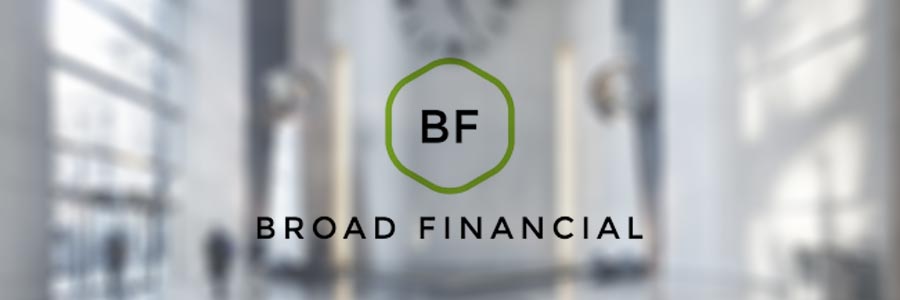
Minimum Investment: $0
Broad Financial offers two core products, including Self-Directed Bitcoin IRAs and Solo 401(k)s with Checkbook Control. From the Broad Financial dashboard, investors can buy virtually any alternative asset allowed in an investment account – including bitcoin and other cryptocurrencies. There’s no minimum investment amount required.
Unlike certain other companies listed here, Broad Financial doesn’t use a third party custodian: they are the custodian.
Another nice thing about Broad Financial is that the company doesn’t charge asset-based fees. Some other companies here charge fees of 1% per year on your total asset value, which means your savings slowly get chipped away over time. With Broad Financial, you pay flat-rate fees instead, making this an attractive option for all levels of investors.
Broad Financial offers both Traditional IRAs and Roth IRAs. Plus, you get to choose the cryptocurrency exchange you want to use. And, you get to use the digital wallet of your choice.
We also appreciate the transparent fee structure. While other Bitcoin IRA companies listed here refuse to disclose their fees upfront, Broad Financial displays their fees publicly on their website. You’ll pay a flat-rate fee of $1,295 to set up your account, for example, instead of the 15% to 25% charged by other bitcoin IRA companies.
Overall, Broad Financial is one of the more trusted providers in an industry with lots of sleazy competitors.
BlockMint
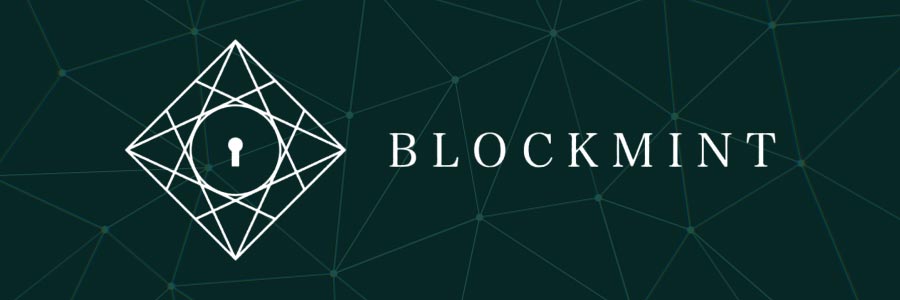
Minimum Investment: $10,000
BlockMint is one of the top options among bitcoin IRA companies. The company frequently appears at the top of lists of best bitcoin IRA services. BlockMint is backed by Lear Capital, which has been one of the biggest names in the precious metals IRA space for 20 years. The main ‘catch’ is that you need to invest at least $10,000, although other bitcoin IRA options on this list have higher minimum investment requirements.
Most BlockMint customers have good things to say about the company. They claim the company has good customer service and an easy-to-use exchange interface. Experts are patient and knowledgeable with customers whether this is your first time buying crypto or you’re a seasoned expert.
In exchange for that high level of customer service, BlockMint’s customers pay hefty fees. You’ll pay 15% fees when buying cryptocurrency, for example, although small discounts are available based on volume.
You also need to meet the minimum investment amount of $10,000 for each type of coin. You cannot buy $7,000 of BTC and $3,000 of ETH to meet the minimum investment amount of $10,000, for example; you need to buy at least $10,000 of each type of coin.
You’ll also pay fees to BlockMint’s custodian, which is New Direction IRA Services. The company charges $200 per year as an annual storage fee along with an administration fee of $450 to $725 per year based on your account balance and the number of cryptocurrencies held.
Bitcoin IRA
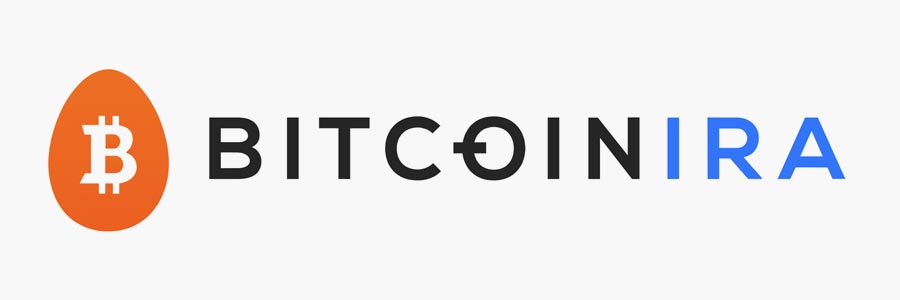
Minimum Investment: $5,000
Bitcoin IRA was one of the first bitcoin IRA companies in the industry. Launched back in 2016, Bitcoin IRA is a Sherman Oaks, California-based financial services provider specializing in setting up bitcoin IRAs for clients. You pay fees of 10% to 15% at setup, then ongoing fees of 1% to the company’s IRA custodian. In exchange for those fees, you get all-in-one, hassle-free service from people who are experts at setting up bitcoin IRAs.
Technically, Bitcoin IRA doesn’t directly provide any actual bitcoin IRA services: the company just acts as a customer service hub. They connect exchanges, crypto wallets, and IRA custodians together with investors.
Bitcoin IRA originally used Kingdom Trust as its IRA custodian. In 2019, however, Bitcoin IRA partnered with BitGo Trust to store crypto holdings for customers. Bitcoin IRA’s retirement account with BitGo Trust is insured for $100 million. Plus, customers can diversify their holdings into 12 different digital assets while paying 30% lower wallet fees.
Bitcoin IRA benefited from the first-mover advantage in the crypto space. The company began offering crypto retirement accounts in 2016, quickly growing to a client base of more than 5,000 hybrid crypto IRAs. Since 2016, Bitcoin IRA has processed over $300 million in digital asset transactions. Overall, the company claims to be the largest bitcoin IRA company in the space, and we see no reason to doubt that claim.
First Digital IRA
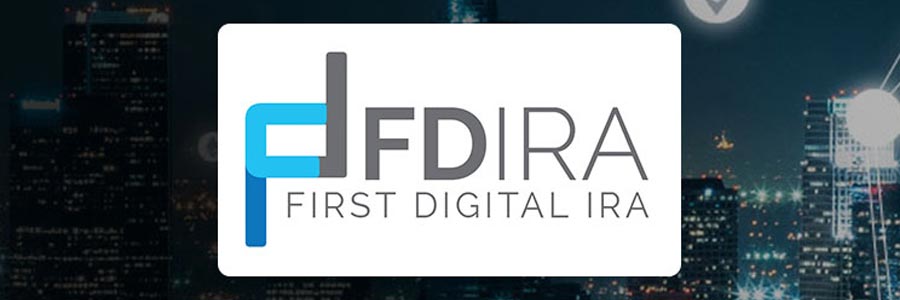
Minimum Investment: $20,000
First Digital IRA lets you invest in BTC, ETH, or XRP through your IRA. There’s a minimum investment of $20,000. First Digital IRA has partnered with Kingdom Trust Co. to be the custodian for digital IRA customers.
Other advertised benefits from First Digital IRA include “tax-free growth”, “security”, and “diversification”. First Digital IRA also claims to take care of the entire process of setting up a bitcoin IRA from start to finish. That includes the process of creating a self-directed IRA account with a custodian, buying bitcoin, and storing bitcoin in a wallet.
Like other shadier bitcoin IRA providers listed here, First Digital IRA refuses to disclose its fees upfront. You have to request a guide to see how much it costs. Typically, this means the fees are on the high end, even costing as much as 10% to 25% just for acting as a middleman. That’s a significant chunk of your initial investment wiped out in unnecessary upfront fees alone.
Coin IRA
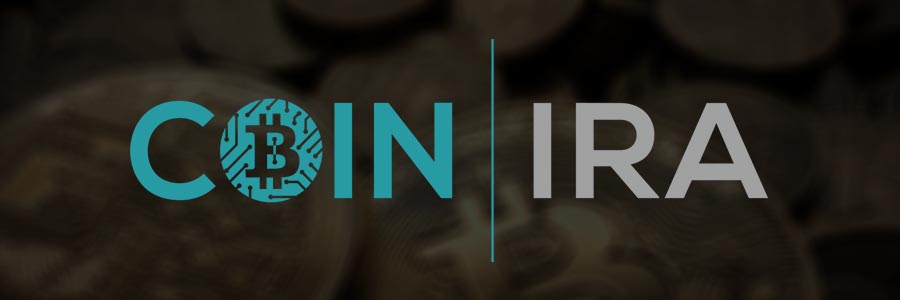
Minimum Investment: $30,000
Like Bitcoin IRA, Coin IRA is a facilitator company, which means they don’t actually provide wallet, exchange, or custodial services: they just connect investors with these services, acting as a middleman while enhancing the user experience.
If you’re new to cryptocurrency and don’t mind paying a premium for convenience and customer service, then Coin IRA is one option. The company promises to give customers freedom from banks while helping them secure their money in a tax-deferred account. Customers’ funds are insured in “hacker-proof” cold storage.
Like other bitcoin IRA providers listed here, Coin IRA is a subsidiary of an existing precious metals IRA company. Specifically, Coin IRA is a subsidiary of Goldco, which is based in Woodland Hills, California.
BitIRA
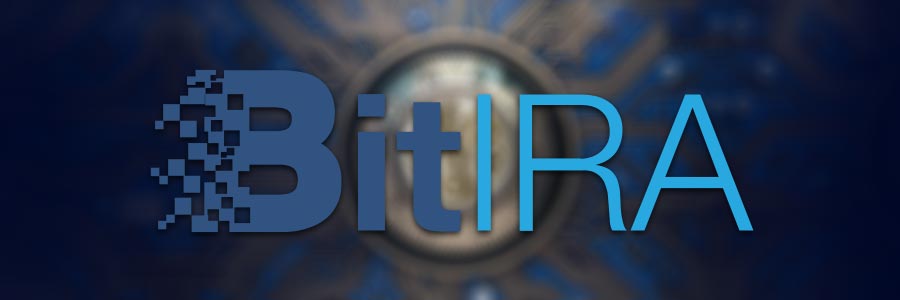
Minimum Investment: $20,000
BitIRA is a relatively new crypto IRA provider launched by Birch Gold Group. The company distinguishes itself from the competition by ensuring assets against theft, fraud, hacks, and even mistakes. That gives investors an extra layer of security – particularly investors who want to invest in crypto but are worried about the risks.
BitIRA holds customer funds in cold storage in a guarded vault, similar to most other custody solutions here. BitIRA also claims to take care of the entire process for you, letting customers enjoy high tax-free growth with minimal fees or risk.
That all sounds good, but a closer look reveals some issues with BitIRA. The company’s website is filled with awkward testimonials and headshots from Peter Thiel, Bill Gates, and Eric Schmidt, making it seem like they all endorse this company. In reality, these three have nothing to do with BitIRA. BitIRA is also just a third party middleman: the company takes a cut of your investment in exchange for connecting you with a wallet and custodian.
One of the biggest issues we have with BitIRA is that the company refuses to disclose its fees upfront. When asked about custodial fees, the company simply responds, “fees for every account will vary”. We assume BitIRA charges fees as high as 10% to 25% just for operating as a middleman between you and an IRA custodian.
Noble Bitcoin
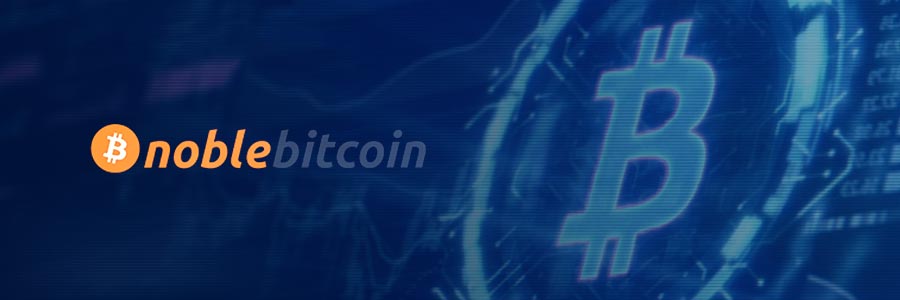
Minimum Investment: $20,000
Noble Bitcoin is an offshoot of Noble Gold Investments, a precious metals IRA firm. The company aims to help anyone diversify their IRA or 401(k) with bitcoin and digital currencies. Today, you can buy BTC, ETH, LTC, and XRP directly through Noble Bitcoin while enjoying the advantages of a Bitcoin IRA.
Other promised benefits with Noble Bitcoin include an efficient IRA rollover process, a customer-first approach, and 25 years of experience handling precious metals IRAs for customers.
Noble Bitcoin and its parent company Noble Gold Investments are based in Pasadena, California. The company offers limited information about its products, services, or fee structure upfront, although customers can request a free guide to learn more.
Regal Assets Bitcoin IRA
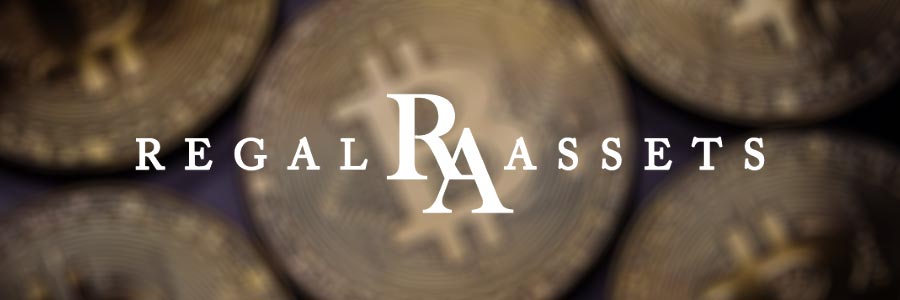
Minimum Investment: $5,000
Regal Assets lets customers invest in BTC, LTC, XMR, XRP, and ETH through an IRA. There are two introductory package options available, including the Merchant Package ($5,000 investment required) and the Knighthood Package ($10,000 investment required). For those willing to invest more money, there’s also the $50,000 Knightshop Portfolio, the $100,000 Dynasty Portfolio, and the $250,000 Coronation Portfolio.
Regal Assets claims its experts are available to chat 24 hours a day, 7 days a week. However, there’s an overall lack of transparency with how Regal Assets operates, including its fee structure and other information you want to know before sending your money to a company.
Bitvest IRA

Minimum Investment: $0
Bitvest IRA is one of the shadiest bitcoin IRA companies in the space today. The company’s website looks like it was designed in the 1990s. The company also makes absurd promises, claiming you can buy bitcoin for your IRA “with no commissions”. The Bitvest IRA website is also filled with random testimonials and headshots from investors like John McAfee, James Altucher, and Mike Novogratz despite the fact they have nothing to do with this company.
In any case, if you’re willing to take a risk with a shady company, then Bitvest IRA is one option. The company claims to have formed a strategic partnership with Madison Trust Company, which they describe as a “government approved and regulated, chartered trust company” and “a leader in offering IRS approved self-directed retirement services.”
Madison Trust Company is a New Jersey-based self-directed IRA provider, while Bitvest IRA (also known as Bitvestmint LLC) is based in Boca Raton, Florida.
13 Things to Look for in Bitcoin IRA Company

Bitcoin IRA companies are relatively new, and it can be hard to separate good bitcoin IRA companies from bad ones.
Fortunately, we’re here to help. Here are 10 things we look for when analyzing today’s bitcoin IRA companies.
Initial Setup Fees: Some IRA custodians charge initial setup fees as high as 15% to 25%. If you buy $100,000 of bitcoin today, then that means you’re paying fees of $15,000 to $25,000. Sometimes, you’re better off paying the capital gains taxes!
Maintenance Fees: Many IRA custodians charge annual maintenance fees. With some companies, these fees are a flat rate of, say, $100 per year. Others charge fees based on 1% to 3% of your asset value, which can quickly erode your savings and any gains.
Other Fees: On top of the initial setup fees and maintenance fees, some IRA companies charge even more fees. Some companies charge “administration fees”, for example, reducing your savings even further. Some of the companies listed above charge administrative fees of 1% of your asset value, for example, which means your retirement account will drop in value by 1% every year if all else stays the same. These unnecessary fees chip away at your earnings and reduce growth.
Facilitator Companies Versus Custodial Companies: Some bitcoin IRA companies don’t really do anything except act as the middleman. Bitcoin IRA, for example, doesn’t provide wallet services, nor does the company act as an IRA custodian: Bitcoin IRA is just a middleman that charges a 10% to 15% fee for connecting an investor like you to wallet and custodian services. Some investors are willing to pay a premium for good customer service, while others are not.
Multiple Crypto Purchase Options: Some bitcoin IRA providers only allow you to buy bitcoin for your IRA. A growing number, however, now allow you to purchase ETH, XRP, and other major cryptocurrencies. Some even allow you to buy 12+ cryptocurrencies for your retirement account.
Security History: Does the bitcoin IRA company have a strong security history? Do they use state-of-the-art security procedures to safeguard accounts? Have they partnered with reputable third-party banks and storage providers?
Login Protection, Withdrawal Protection, 2FA, Etc.: Does the IRA company protect your account against unauthorized login attempts? Does 2FA safeguard your account against unwanted intrusions? Login protection helps your crypto investments stay in your account.
Insurance: Many bitcoin IRA providers now insure their funds against losses, theft, and hacks. Insurance is good for two reasons. First, it shows an insurance company was sufficiently impressed by the company’s security procedures to provide a policy. And second, it means customers like you are safeguarded against losses.
Account Setup Process: How quickly can you set up an account with the bitcoin IRA provider? Does the company take days or weeks to respond to your request? Or do they work with you 24/7 to set up an account quickly?
Access to Crypto Holdings and Private Key Management: Who holds your private keys with your bitcoin IRA? Some bitcoin IRA providers give multiple parties access to your private keys for additional security. Others trust you to manage your private key.
Transparency: The bitcoin IRA space is relatively new, and that means there are plenty of shady companies out there willing to take your money while charging excessive fees. Most good bitcoin IRA companies disclose their fees and terms upfront. Some companies, however, refuse to disclose any information about how cryptocurrencies are stored, who their custodial partner is, or how much customers are charged in fees. This is information you need to know before sending thousands of dollars to a bitcoin IRA provider.
Withdrawal Fees: Some IRA custodians hold your money hostage, charging excessive fees if you ever want to close down your account. Make sure you understand any withdrawal fees if you plan to rollover your IRA, withdraw your bitcoin, or close down your account.
Customer Ratings: Most bitcoin IRA companies are new, which makes it hard to find trustworthy customer reviews online. We checked reviews for all of the companies listed above, although we took all reviews with a grain of salt.
Final Word
The bitcoin IRA space is relatively new, and the industry is filled with shady providers. While the first two options on our list (Broad Financial and BlockMint) seem to provide good service at a reasonable price, most other companies on our list charge excessive fees with little reason.
Fortunately, there are other options:
Contact an attorney and set up a bitcoin IRA yourself. An attorney can help you set up an LLC, create a self-directed IRA, and maximize your tax-deferred bitcoin savings.
Wait for more reputable providers like Vanguard and Fidelity to enter the space (both are rumored to be launching bitcoin investment accounts in the near future).
No matter if you are an investor, trader or work to earn bitcoin, looking into a BTC IRA is a smart choice to do. We will continue to update our user review guide on Bitcoin IRAs as well as researching all of the top cryptocurrency individual retirement account companies to give you the best break downs and benefits of each available.

I’m Aziz, a seasoned cryptocurrency trader who’s really passionate about 2 things; #1) the awesome-revolutionary blockchain technology underlying crypto and #2) helping make bitcoin great ‘again’!
The post Bitcoin IRA: Top Crypto Individual Retirement Account Companies appeared first on Master The Crypto.






